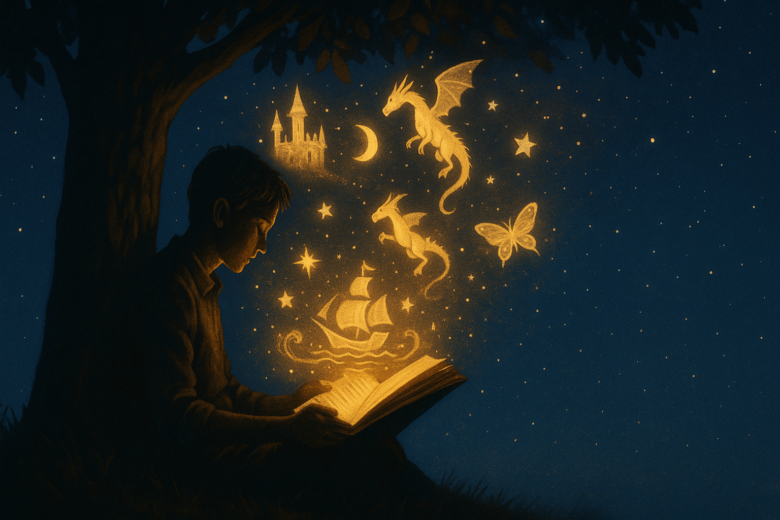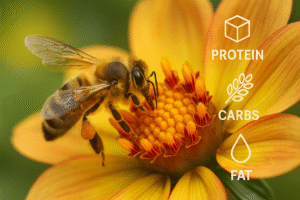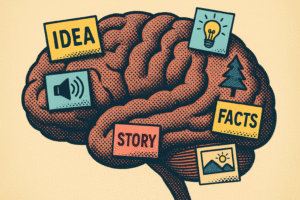Fun Fact: Albert Einstein once said, “I have no special talents. I am only passionately curious.”
As children, wonder comes naturally. A cardboard box becomes a spaceship. A bug on the windowsill becomes a friend. The stars in the night sky are portals to somewhere else. But something shifts as we grow older. Life becomes scheduled, pragmatic, boxed in. Bills. Jobs. Routines. Slowly, curiosity gets replaced by certainty. But what if that’s the real tragedy of adulthood?
In this blog, we explore “Why Wonder Matters: The Science of Staying Curious in Adulthood.” Because wonder isn’t just child’s play—it’s mental survival. Staying curious may actually keep your brain younger, your relationships deeper, and your life more meaningful. And if you’ve lost that spark, the good news is: it can be relit.
Wonder Isn’t a Luxury. It’s a Lifeline.
Let’s be blunt: adulthood can be boring.
The same commutes, the same conversations, the same grocery list every week. But underneath that sameness is something even more dangerous—mental stagnation.
A 2021 study in Psychological Science found that regularly encountering awe—through experiences like nature, music, or learning—can boost emotional health, enhance memory, and foster a greater sense of humility. That’s right: wonder makes you a better person.
And yet, we treat it like dessert. A treat. A bonus. When in fact, it should be part of the main course of adult life.
The Brain on Curiosity
Here’s what the science says: Curiosity activates the dopaminergic system, the part of the brain associated with reward and motivation. When we’re curious, we’re not just passively absorbing information—we’re seeking, predicting, and learning. It’s like your brain is saying, “Give me more!”
Research from the University of California, Davis shows that curiosity boosts activity in the hippocampus—the region responsible for forming new memories. In short, the more curious you are, the more you remember.
So if you’re forgetting things lately, maybe your brain’s not broken. Maybe its just bored.
Wonder Makes Us Wiser (and Kinder)
One of the most beautiful effects of wonder is that it pulls us out of ourselves. When we’re in awe of a mountain, a piece of music, or even a perfectly worded poem, our ego shrinks. We become more generous, more patient, more connected.
A 2015 study by researchers at Stanford University found that participants who experienced awe were more likely to help others, even when it came at a personal cost. Wonder, it seems, makes us more human.
Compare that to what a lack of curiosity breeds: rigidity, cynicism, and closed-mindedness. Think about that grumpy uncle who knows everything and wants to learn nothing. He’s not wise—he’s stale.
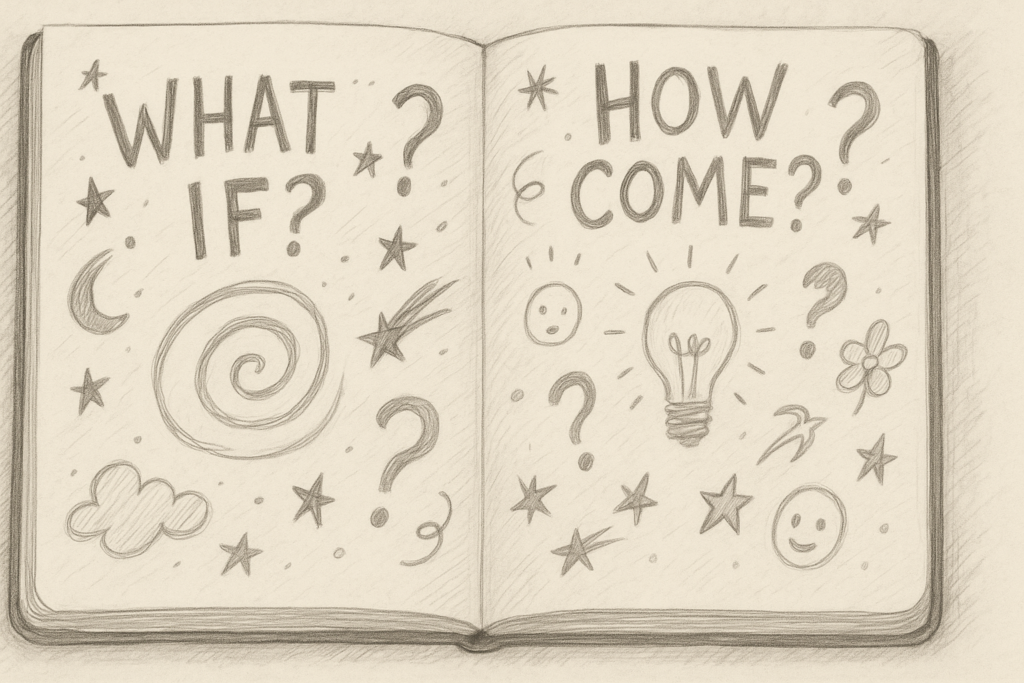
Curiosity Is the Antidote to Burnout
Burnout isn’t always about doing too much. Sometimes it’s about doing the same thing for too long without asking why.
If you feel emotionally flat or uninspired, it may be because you’ve stopped asking questions. Curiosity is a spark. It doesn’t just make life interesting—it makes it bearable.
At IDEO, a renowned global consultancy specialising in design and innovation, curiosity isn’t optional—it’s woven into the company’s everyday culture. They don’t start meetings with “What do we know?” They ask, “What don’t we know?” It’s a mindset that fuels innovation—and prevents emotional exhaustion.
What if we ran our lives like that?
Real Adults, Real Wonder: Case Studies
Case 1: The Retired Chemist Who Learned Sanskrit
At 68, Rajesh Mehta had just retired from a lifetime of working in pharmaceuticals. With time on his hands, he decided to learn something “utterly impractical”—Sanskrit. Within two years, he was translating ancient texts for a local heritage group. “I thought retirement meant shutting down,” he says. “Turns out, it was a doorway.”
Case 2: The Single Mother Who Took Up Astronomy
Anjali Gupta, 34, used to spend her nights scrolling social media. Then, during the pandemic, she bought a used telescope. “My first glimpse of Saturn’s rings made me cry,” she said. Today, she runs a WhatsApp astronomy group with over 300 members across India.
Case 3: The Corporate Leader Who Picked Up Sketching
Amitabh Rawat, a senior VP at a tech firm, found himself stuck in Zoom purgatory. “I was slowly losing the joy of building anything,” he recalls. He started sketching during lunch breaks. Not only did his creativity return, but his leadership team also noticed his shift in mood and energy.
These aren’t fairy tales. They’re real people, reigniting wonder by refusing to let adulthood dull their edge.
Barriers to Wonder—and How to Break Them
Wonder doesn’t always come easy. Especially not in a world built for speed and efficiency. Here are the most common blockers—and how to push past them:
- “I don’t have time.”
Wonder doesn’t require hours. Even a five-minute curiosity break—reading a weird Wikipedia page, watching a nature clip, staring at the moon—can reset your brain. - “I’m too old to start.”
Science disagrees. Neuroplasticity—the brain’s ability to rewire—never stops. Learning a new skill at 50 can be as impactful as it was at 15. - “It’s not productive.”
Neither is falling in love. But you do it anyway, because it makes life richer. Wonder does too. - “I might fail.”
So what? Curiosity doesn’t demand expertise. It demands openness. You don’t have to be good. You just have to be interested.
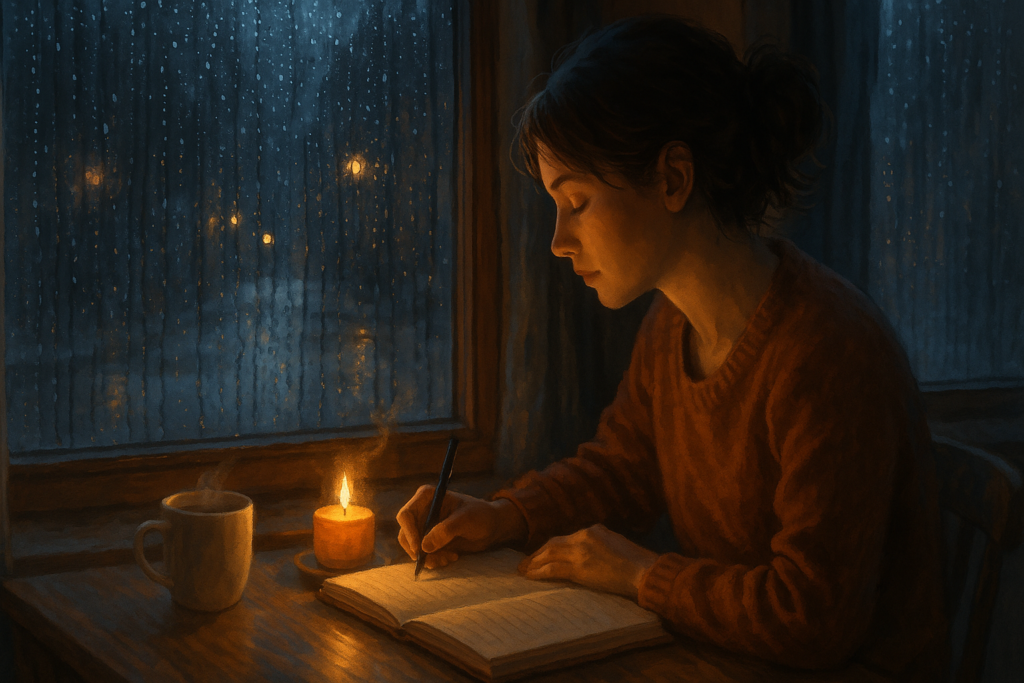
Reignite the Spark: 10 Ways to Stay Curious
- Read something outside your comfort zone—philosophy, poetry, particle physics.
- Take a different route home.
- Ask “Why?” five times in a row about anything.
- Watch a documentary on something you know nothing about.
- Learn a new language or instrument.
- Strike up a conversation with someone whose life experience is vastly different from your own.
- Visit a museum—even a weird one.
- Try a new recipe from a different culture.
- Start a curiosity journal: write one question a day.
- Spend time with children—and let them teach you how to wonder again.
Conclusion: Wonder Isn’t Optional. It’s Oxygen.
We’ve been sold a lie—that adulthood means answers, not questions. That it’s about being realistic, not being amazed. But here’s the truth: wonder isn’t a phase we grow out of. It’s a capacity we must grow into.
The science is clear. Curiosity heals. Wonder energises. Questions keep us alive.
So go ahead: ask, explore, marvel, tinker, learn. Not because it’ll help your résumé. Not because it makes you look smart. But because it connects you to what’s still wild and wide and possible inside you.
Because the day we stop wondering is the day we start dying.
Author’s Note
This piece is deeply personal. As a writer, I’ve often found myself chasing productivity at the expense of playfulness. But rediscovering wonder—through conversations, books, and late-night thoughts—has reminded me why I started writing in the first place. I hope this blog reminds you, too, that your curiosity still matters.
G.C., Ecosociosphere contributor.

